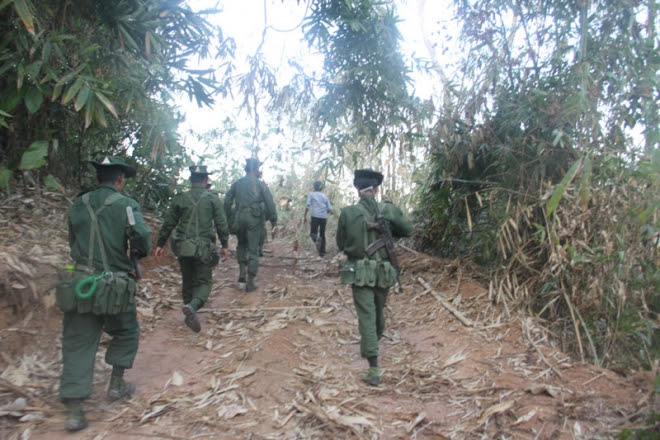A key alliance of ethnic groups has condemned recent Tatmadaw offensives in Kachin and northern Shan states and warned they could jeopardise negotiations with the government on a national ceasefire agreement.
The warning was issued by the United Nationalities Federal Council in a statement issued on April 23 in the northern Thai city of Chiang Mai, where it had convened an urgent meeting of its central executive committee on April 21 and 22.

Tatmadaw operations against the Kachin Independence Army and the Ta’ang National Liberation Army and the Shan State Army (North) were tantamount to strategic offensives, the UNFC statement said.
“The offensives from the government side are putting pressure on us and if they continue the peace negotiations can be damaged,” UNFC secretary Naing Han Tha said in Chiang Mai on April 23.
The offensives may lead to the postponement of the next round of negotiations in Yangon between the ethnic rebel groups’ National Ceasefire Co-ordinating Team and the government’s Union Peace-Working Committee on a ceasefire agreement, Naing Han Tha said.
“Negotiations will continue but they have been hampered,” he said. “Suspicion grows larger and if the fighting continues, the negotiations may end in failure.”
The UNFC statement said that of the Tatmadaw’s brigades, numbers 22 and 44 were deployed in Kayin and Mon states respectively.
All of the other brigades – numbers 11, 33, 55, 66, 77, 88 and 99 – were deployed in Kachin and northern Shan states, were they had joined forces with the Northeast Command and Northern Command troops, the statement said.
It was obvious that the government was using extra force to try to crush the ethnic nationalities in the two regions, it said.
The UNFC said it was concerned that the offensives were leading to increased numbers of refugees, human rights abuses, sexual offences and other war crimes.



